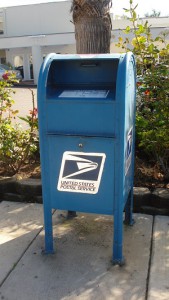A frequent issue that arises for users of the court system is that of finding contact information of the parties they need for their court case. This could be the intended defendant that must be served, or a potential witness to be subpoenaed. The task is made all the more challenging with the modern need to keep personal information personal for security reasons. So what is a litigant to do? Even though there is no single perfect method for locating someone, you may find one of these resources useful.
- Consider the old printed white pages and yellow pages. This used to be the standard tool, but has declined with fewer persons having “land lines” for phone service and even fewer publishing their numbers. Still, they can be valuable especially for business information. Most libraries will have this resource, and a public library or historical society is likely to have printed phone directories from past years.
- The post office likely has forwarding address information for a person that has moved. It is not generally publicly available, but you can opt to fill out a 5-2 Requests for Employee or Customer Information, and provide the requested information pursuant to legal process service.
- County property records can also be a resource, especially if you are looking for a landlord or other property owner. For Ramsey County, look up address and then see taxpayer reports for the identified taxpayer for the year in question. (You don’t necessarily need to be a subscriber.) This will normally give the taxpayer’s address as well. You can also find the official name of the owning business this way, and then look that up through the Secretary of State to find a person and contact information behind that business.
- Does the person in question have a business (or used to)? Use the Minnesota Secretary of State’s office business filings lookup and get their Registered Office Address.
- If the person in question has been in court on a traffic citation, their address may be part of that file which can be found in court records (MNCIS). Similarly, they may have been served as part of another court action and their address is given on a service list. You will still have to go to the courthouse to access the actual records, but there you can check pleadings like the complaint for addresses.
- Might they be in prison? Try the Department of Corrections offender locater search. Even if you have no plans to sue someone in prison, you may still need them as a witness. If so, speak to a court administrator about getting a subpoena.
These are just some of the possible tools that might help you locate your person in question. Also read the Courts’ webpage for information on this task. Do you know of other any handy resources for locating people? Feel free to share them here!